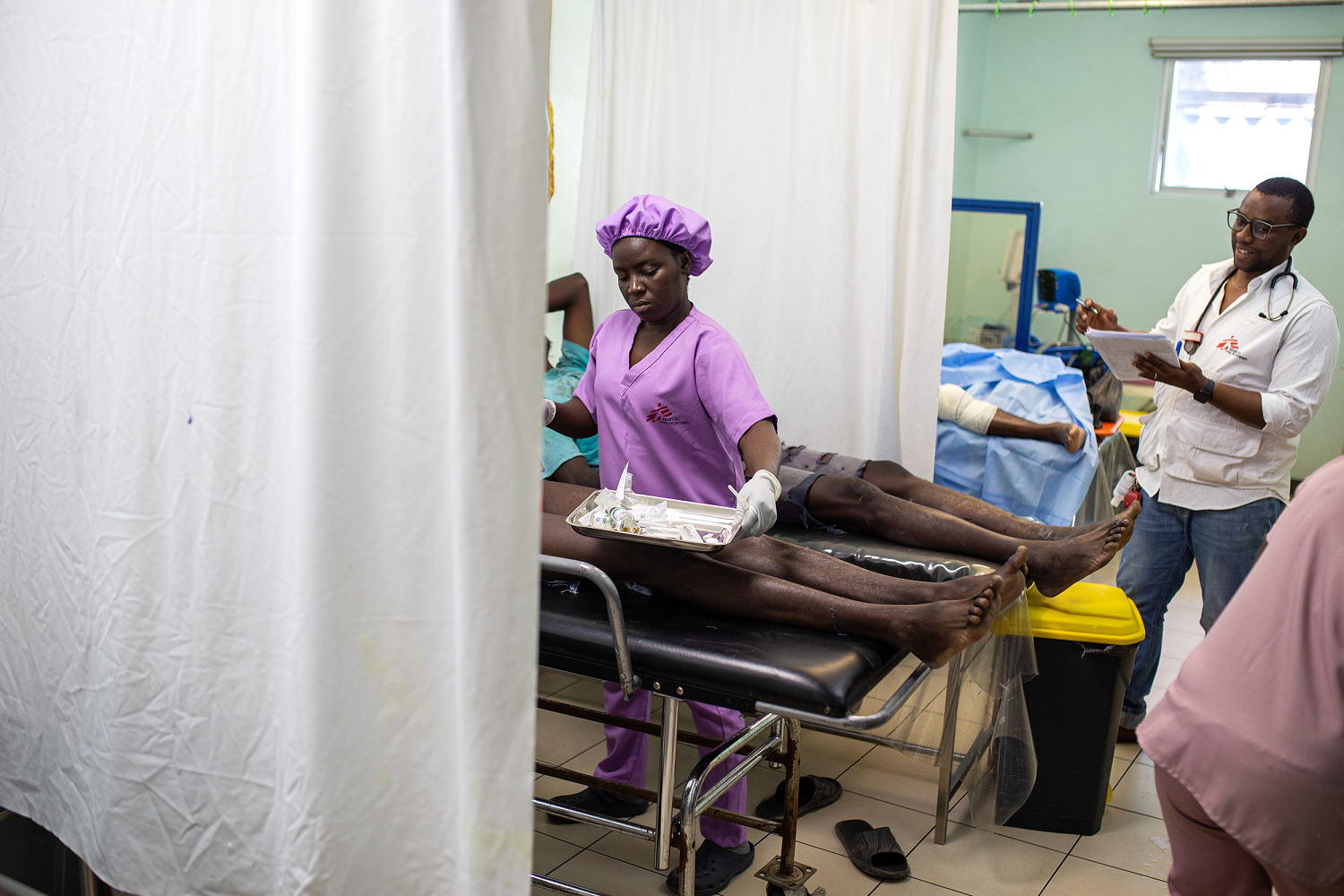Haitian hospital reopens after deadly confrontation with gang

A hospital in Port-au-Prince, Haiti, reopened last week after it was forced to shut down in December because of a wave of gang violence affecting the Caribbean country.
Dr. James Gana of Doctors Without Borders told NBC News that the Doctors Without Borders Emergency Center in Port-au-Prince’s Turgeau district had to close after medical staff members tending to an arriving ambulance were confronted by members of one of the gangs that have seized control of most of the capital.
“The ambulance was surrounded by armed men who forced open the ambulance and executed the patient,” he said. “This was meters away from our hospital.”
Gana said the rise in violence pressured him to reopen the hospital and see as many patients as he could. Before the execution in December, he would see 80 to 100 patients a day. But with the escalating violence leaving patients fearful of seeking medical care, he said, he sees only about 30 or 40 people a day at the reopened medical center.
The bloodshed has been rising since 2021, when Haiti’s president was assassinated and armed gangs filled the power vacuum. But this month, a mass prison break and the resulting chaos have effectively shut down most of the country.
Haiti asked the United Nations for help last year. In October, the U.N. Security Council authorized the Multinational Security Support mission — led by Kenya — to help restore order. The U.S. pledged $200 million. But months later, the mission has yet to get off the ground.
On Monday, Secretary of State Antony Blinken traveled to Jamaica for an emergency meeting with leaders of Caribbean countries.
“We continue to look to expedite that mission as soon as possible,” said Matthew Miller, a State Department spokesperson, adding that Blinken also spoke with William Ruto, the president of Kenya, on Friday.
Last week the State Department urged Americans not to travel to Haiti and advised those who are there to leave as soon as possible. Because no commercial flights are leaving the country, the State Department has also asked Americans there to register through a crisis intake form on the embassy’s website.
Haitian Prime Minister Ariel Henry remains in Puerto Rico. Senior administration officials have been in contact with him but are not assisting him in returning to Haiti.
“If he goes back to Haiti, he’s not going to survive,” said former Ambassador Daniel Foote, a special envoy to Haiti who resigned in 2021 to protest mass deportations of Haitians from the U.S.
The White House has insisted that it would not send U.S. troops to Haiti and that it would rely on the multinational security force to stabilize the country and help expedite a political transition.
President Joe Biden approved an operation over the weekend to beef up security at the U.S. Embassy in Haiti and evacuate nonessential personnel.
U.S. Southern Command said in a statement that “no Haitians were on board the military aircraft” during the evacuation — seemingly a rebuttal to any speculation that the Biden administration might be helping Haitian officials leave the country.
In Port-au-Prince, Gana — a 30-year-old Nigerian who also worked in southern Yemen in 2021 and 2022 — said many hospitals have shut down over the past week amid the worsening violence. The ones that are still open are running dangerously low on medications and are having trouble finding fuel for generators.
“The health system has been on a steady train of deterioration for many years,” Gana said. “But now it’s really at the border of collapse.”



